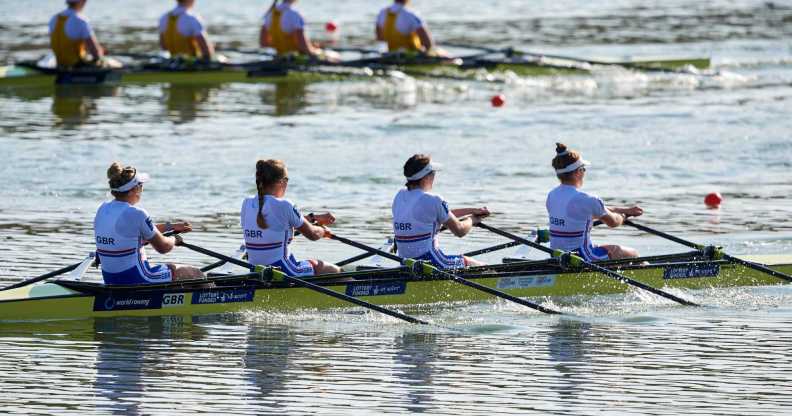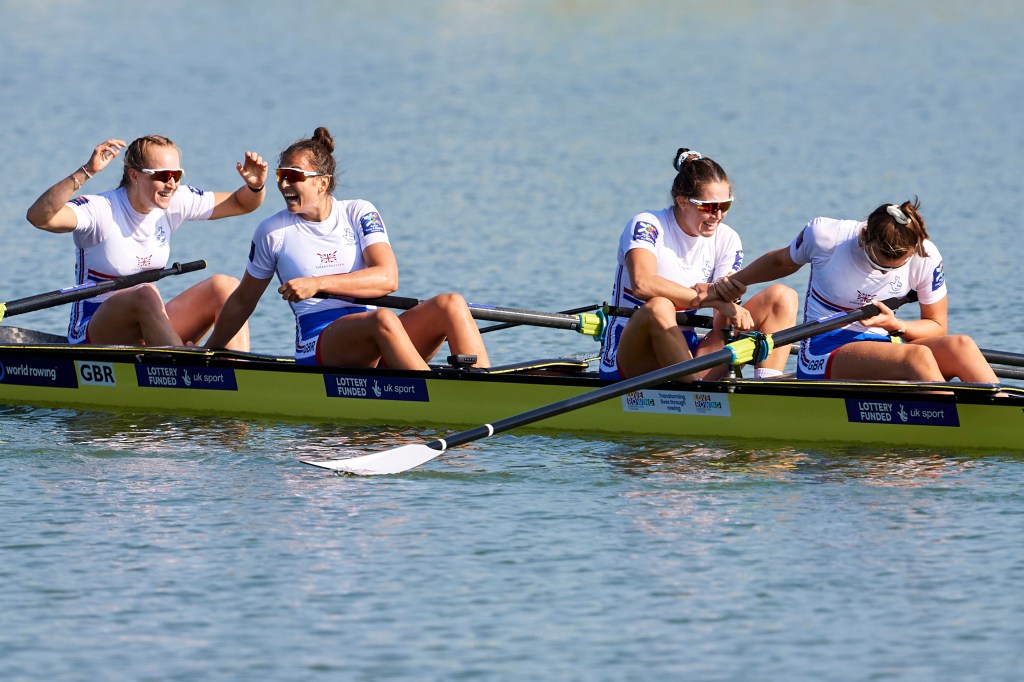British Rowing considers ban on trans women from female category

(L-R) Jessica Marie Leyden and Lola Anderson and Georgina Megan Brayshaw and Lucy Glover all of Great Britain compete in Womens Quadruple Sculls Final A during 2022 World Rowing Championships. (Adam Nurkiewicz/Getty Images)
British Rowing is considering banning trans women from competing in the female category and has asked members to vote to determine its decision.
The sporting body is asking its 31,500 members to cast votes on a preferred trans policy by 5pm on 12 May.
The policies on the table include a continuation of British Rowing’s existing policy – where trans women are eligible to compete if their testosterone is under five nanomoles per litre – reducing the threshold to 2.5 nanomoles per litre as per World Rowing’s policy, or only allowing “athletes who have been declared female at birth to compete in the ‘female’ category”.
British Rowing’s vote comes amid increased scrutiny of trans athletes, particularly trans women, with some leading bodies opting to completely ban trans women from competing in the category that aligns with their gender.
British Rowing’s chair, Mark Davies, has previously urged sport’s global governing body, World Rowing, to create an open category for international competition and for trans women to be relegated to competing in it.
Davies cited “concern that there is a threat to the hard-fought-for progress in women’s sport” as his reason.
As per reporting by The Telegraph, British Rowing’s board is set to meet on 27 May to discuss the result of the vote.
Any outcome of the vote in regards to changing the body’s policy on trans inclusion will have to be approved by the board.

In October 2022, British Rowing updated its trans and non-binary inclusion policy for competition to require trans women in the female category to have a “testosterone concentration” of “less than 5 nmol/L continuously for a period of at least the previous 12 months”.
If a trans or non-binary person wishes to compete in the open category in domestic competition, under the new guidance they “shall be able to self-identify without the need for further information or evidence”.
For recreational rowing, British Rowing stated it “strongly” believes the sport should be as “inclusive and accessible as possible”.
“British Rowing encourage clubs to consider whether at recreational level squads need to be gender segregated. If squads are gender segregated, a trans or non-binary person should be able to participate in whichever squad they feel most comfortable with,” the body stated in the guidance.
Anti-trans figures were quick to blast the move by British Rowing at the time.
Dr Mary O’Connor, a member of the US women’s team selected for the 1980 Moscow Games, told The Telegraph the policy change was “indefensible”.
“We don’t create categories based on race or ethnicity or religion. We create them based on biological facts. That’s why we have age and weight categories in rowing.”
Prior to the new guidance release, and amid reviews of eligibility rules by various sporting bodies, trans-led charity Gendered Intelligence said trans-exclusionary sports policies come from “constant negative coverage of trans people from both the media and government”.
“Trans people are underrepresented in professional sport, with almost no out trans people competing at elite level around the world.
“Despite this, the widespread misinformation has prompted a substantial backlash, and sports bodies have been pressured by both anti-trans organisations and the government to exclude trans people entirely,” the charity said.

